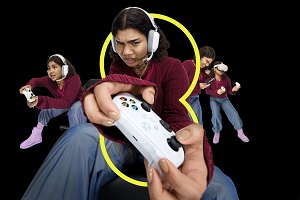You’ve probably seen the meme: “I love my puter. All my friends are inside it!”
If that sounds like your child, don’t worry. In the right circumstances, online friendships can be constructive for social development.
Roughly 82 percent of kids in the UK play online games at least a few times a week,1 and most kids play with friends they either know already or met through games. Research shows these digital friendships are just as important as real-life ones, especially for neurodiverse children.
With the help of EE partner Internet Matters then, let’s look at safe ways to play this exciting social adventure.






